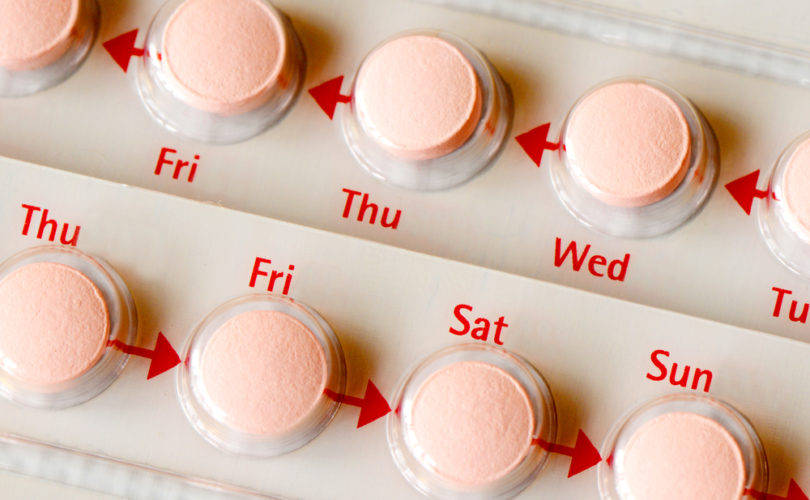June 11, 2015 (C-Fam) — There are certain statistics that take on a life of their own. They are easily encapsulated in a soundbyte, they are rarely linked to a specific citation, and because of their apparent success in proving a point, they are rarely questioned.
As a researcher who occasionally tries to track these memes back to their sources, perhaps I’ve become a bit jaded: some of the most popular stats (example) turn out to be both severely outdated and based on faulty comparisons that should have been discredited at the outset.
This week, an editorial by Jessica Valenti at the Guardian is calling for hormonal contraceptives to be as easy to buy as condoms. This is hardly a new argument, although I’ll confess to being slightly amused by the argument that one should have to “buy” contraceptives at all, given the current push in the U.S. to force nuns to supply them to you free of charge.
According to the Guardian piece:
“[P]harmacy shelves are stocked with things far more dangerous to women than pregnancy prevention – like Aspirin, or Us magazine.”
Regarding the potential dangers of Us magazine, I’ll refrain from making a judgment: perhaps exposure to scented perfume ads can be lethal in confined spaces. But the argument that aspirin is more dangerous than oral contraceptives has been making the rounds for quite a while – is there any merit to it?
It appears that the original source for that tidbit is a 1993 editorial by David A. Grimes, MD: “Over-the-Counter Oral Contraceptives: An Immodest Proposal?” Grimes writes:
“US vital statistics provide some insight into the relative safety of medicines. Although the numbers of women exposed are unknown, none were reported to have died in 1988 from ovarian hormones and synthetic substitutes. In contrast, five died from antidiabetic agents and one from adrenal cortical steroids. Six died from penicillin. Four died accidentally from analgesics, antipyretics, and antirheumatics; 202 women committed suicide with analgesics, antipyretics, and antirheumatics in 1988. Aspirin, which is widely available over the counter (and in vending machines), appears to be more lethal than oral contraceptives.”
I suppose it says something about the safety of aspirin and its fellow-travelers in the “analgesics, antipyretics, and antirheumatics” category that the vast majority of deaths associated with its ingestion were intentionally self-inflicted. We can also make a note that the apparent basis for the “aspirin is more deadly than contraceptives” stat is over twenty years old, and much has changed since then. But is it even a valid comparison? When discussing the “relative safety of medicines,” not all drugs are used by the same populations, used in the same way, or act biologically by similar mechanisms. When it comes to a comparison of vital statistics and causes of death, it’s far easier to attribute a death to drugs when it involves poisoning. An overdose of aspirin (as suicidal persons know all too well,) is often lethal. In the case of an overdose of hormonal contraceptives, according to the National Institutes of Health, “a trip to the emergency room will probably not be necessary,” and “serious symptoms are very unlikely.”
Certainly, drugs that can be lethal in the event of an overdose should be labeled accordingly and dispensed judiciously. But is that the sole criterion for a drug’s safety? Oral contraceptives are certainly not without side effects, and they have been linked to deaths, often associated with blood clotting disorders. From the Guardian:
“In fact, women can self-screen for possible health risks before taking hormonal birth control. For example, if women have had blood clots in their lungs before, or a history of heart attack, hormonal birth control may not be right for them. But the vast majority of women seeking birth control, says [Dr. Nancy Stanwood, associate professor of Obstetrics and Gynecology at the Yale School of Medicine and board chair of Physicians for Reproductive Health], are young women who don’t have such complications.”
I have to ask: does Valenti really think that older women with a history of heart attacks are unable to access contraceptives? “It’s just a matter of taking away the traditional barriers,” says Dr. Stanwood. “Maybe a woman can’t get to a doctor’s appointment, but she can get to a Walgreen’s.”
If she’s got a heart condition, one would hope she could see a doctor before taking a potentially dangerous drug. But what about the young women who are the primary market for these contraceptives? Sometimes the first complication they encounter is a lethal one. A woman in her twenties or thirties who has a stroke may be unaware that heredity or other factors put her at increased risk when using the pill, until the worst happens to her. And newer formulations may only be increasing the risk. But in the event that a young woman dies, will her use of hormonal contraceptives even be listed as a potential cause of death? Unlike an aspirin overdose, it’s not as clear-cut. However, it’s probably fair to assume that the woman wasn’t taking contraceptives in an attempt to end her life.
In summary, the notion that hormonal contraceptives are safer than aspirin is an outdated statistic that relies on apples-to-oranges comparisons, and is not a good rationale for dispensing the pill via vending machines. And as for condoms, which are apparently the gold standard for contraceptive availability: latex allergies can be lethal, after all…
Reprinted with permission from C-Fam.

